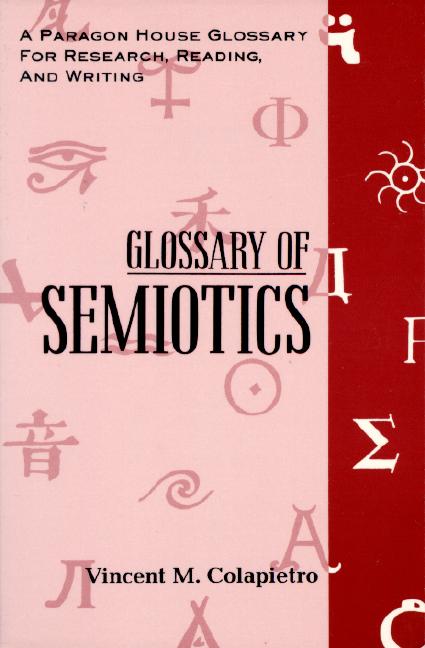"A handy guide to the basic concepts, operational terms
and seminal writers on semiotics...excellent for general readers.-- Choice
As an subject evolves into a specialized, sophisticated, or technical field of study, so does the vocabulary required for those with an interest in that particular discipline. "Lay people," whether novices, generalists, or scholars of divergent backgrounds, may easily find themselves adrift in a sea of unfamiliar terminology, without the tools of language necessary to grasp not only subtleties and fine distinctions, but often key concepts as well.
Created for contemporary students, teachers, and knowledge-thirsty readers, this series extends a bridge to repair this information and communications chasm. Providing a guide for reading and a boost for writing, each glossary delivers a clear, thorough overview of a distinct field -- all within one handy, accessible book. Compiled and edited by academic professionals accomplished within each particular discipline, each volume comes in a portable, 4 1/81, x 6 1/2" paperback and a cloth edition suitable for reference libraries. This series includes three titles, Glossary of Cognitive Science, Glossary of Epistemology/Philosophy of Science and Glossary of Semiotics.
Glossary of Semiotics
The field of semiotics seems like a tower of Babel fraught with newly coined words and exotic uses of ordinary words. This compact resource provides an indispensable key to the specialized vocabulary of a growing international community of scholars in literature, cultural studies, philosophy, anthropology, cinema and women's studies. 487 clear, straightforward definitions shed light on the semiotic texts of Saussure, Peirce, Levi-Strauss, Barthes, Eco Kristeva, Derrida, Irigaray, and others.
The perspectives of major contemporary philosophers on such basic issues
as the structure of psychological theory, the nature of language, and the
existence of mental representations are covered in 20 important and accessible
essays. Each section opens with an essay outlining the principal questions
under discussion. Computation theory, artificial intelligence, human intelligence,
and new frontiers are all covered. A companion to Philosophy and Cognitive
Science, this reader presents the cutting edge for students and researchers
in the field.
VINCENT M. COLAPIETRO is an Associate Professor of Philosophy at Fordham University at the Rose Hill Campus, Bronx, New York. He is known for his work in two overlapping fields, classical American philosophy and semiotics. Colapietro is the author of Peirce's Approach to the Self: A Semiotic Perspective on Human Subjectivity (SUNY Press, 1989) and has published numerous articles in such journals as The Journal of Philosophy, The Transactions of the Charles S. Peirce Society, The Journal of Speculative Philosophy, and The Bucknell Review.






